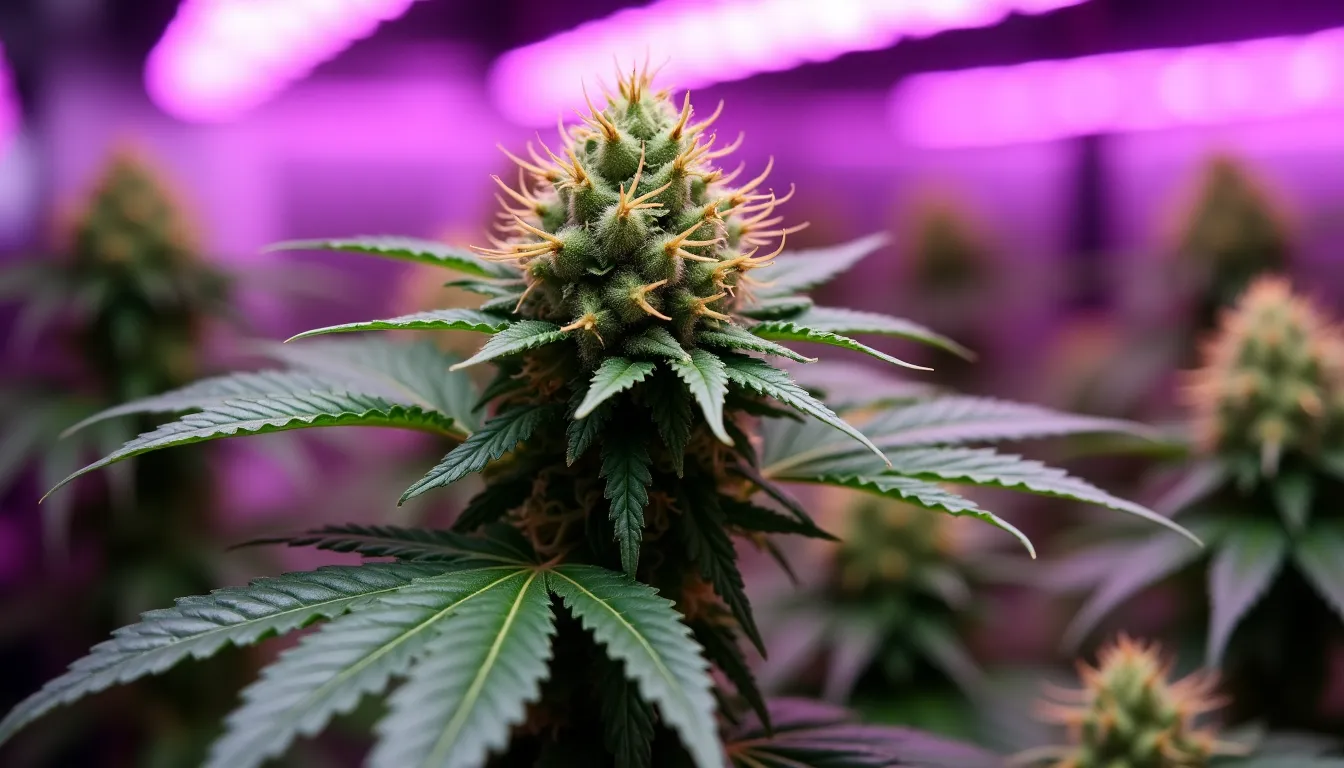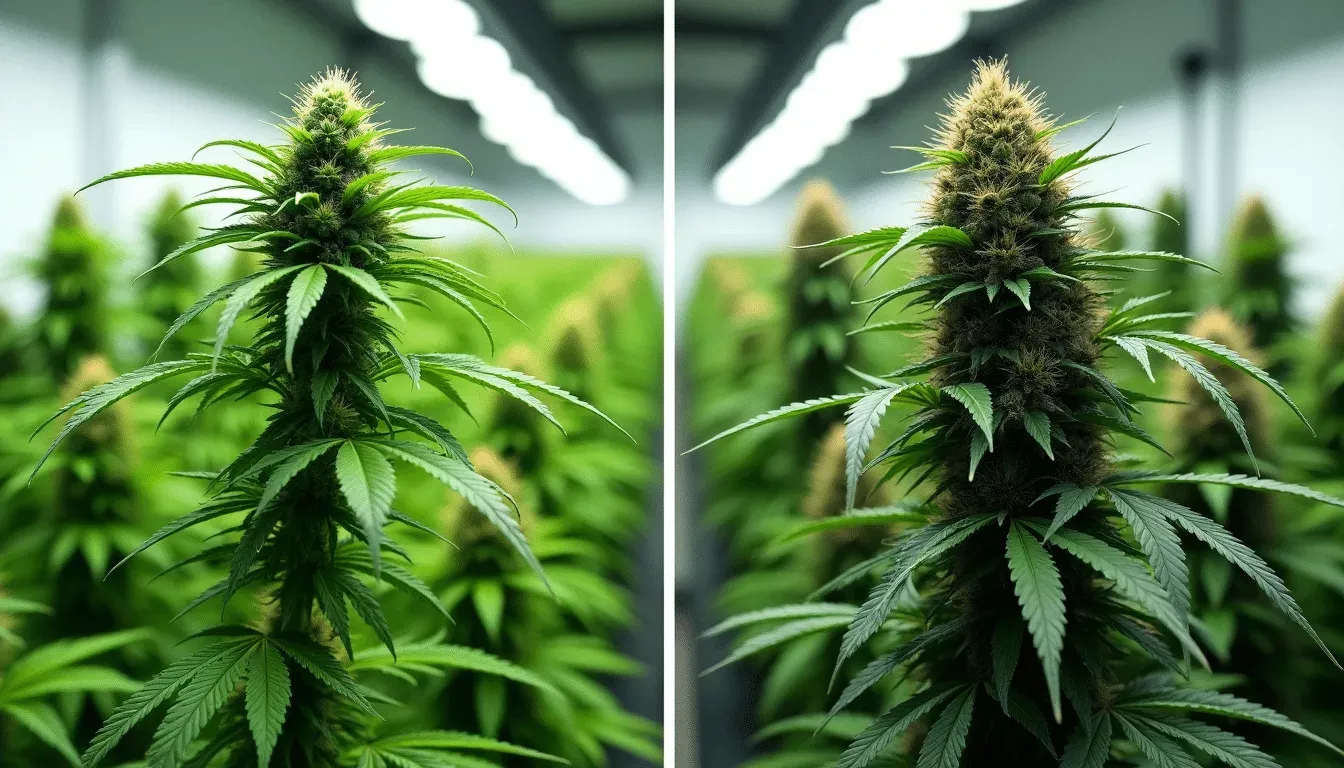What’s True About Co-Using Cannabis and Nicotine?
Cannabis and nicotine are two substances that many people use. Both can affect the body and mind in different ways. But what happens when someone uses them together? In this blog post, we’ll explore the relationship between cannabis and nicotine, focusing on co-use and its effects. We aim to provide simple, clear information to help you understand this topic better.
Table of contents
Understanding Cannabis and Nicotine
Cannabis comes from the Cannabis plant and contains compounds known as cannabinoids. These compounds interact with the body’s endocannabinoid system, producing various effects, such as relaxation or euphoria. Nicotine, on the other hand, is a stimulant found in tobacco. It can increase heart rate and enhance alertness.
Both substances have different uses. Some people use cannabis for relaxation, pain relief, or recreation. Others might reach for nicotine in cigarettes or vaping products to manage their cravings or enhance focus. Understanding these uses helps frame the discussion about their co-use.
The Trend of Co-Use
More people today are using both cannabis and nicotine together. According to a study published in the journal Addiction, around 30% of cannabis users also smoke tobacco. This relationship raises questions about how these substances interact and what effects they may have when used in combination.
Many people may not think about the potential risks of co-use. They might see them as harmless individual substances. However, research shows that using them together can lead to unique effects on the body and mind. Therefore, understanding how they interact is vital for informed choices.
Effects of Co-Use on Health
The co-use of cannabis and nicotine can create different health risks. Using both increases the likelihood of developing respiratory problems. Smoking tobacco is known to damage lung tissue. Meanwhile, smoking cannabis can lead to chronic bronchitis and other lung issues. Combining the two can worsen these effects.
Additionally, the combination can increase the risk of addiction. Nicotine is highly addictive, while cannabis users can also develop a dependency. People who use both substances may find it harder to quit. Therefore, understanding the risks involved is essential for anyone considering co-use.
Behavioral and Psychological Effects
Co-using cannabis and nicotine can also affect behavior and mental health. Research indicates that nicotine might enhance some of the effects of cannabis. For instance, nicotine can amplify the feelings of pleasure associated with cannabis use. This combination can create more intense experiences, which may be appealing to some users.
However, this amplification comes with risks. The stimulating effects of nicotine can lead to increased anxiety or paranoia for some cannabis users. In contrast, cannabis may counteract some of the jitteriness caused by nicotine. Understanding these interactions can help users make safer choices.
The Science Behind Co-Use
Studies show that the co-use of cannabis and nicotine can impact brain chemistry. Both substances affect dopamine levels, the brain’s “feel-good” chemical. Dopamine release can lead to enjoyable feelings, creating a cycle of use and dependency.
Interestingly, some users report that consuming both substances enhances their overall experience. However, the science behind this is complex, and more research is needed. It’s essential to stay informed as new studies emerge to better understand these interactions.
Social and Cultural Factors
Social and cultural attitudes toward cannabis and nicotine can also impact co-use. In many cultures, smoking tobacco is more socially accepted than using cannabis. This can influence people’s preferences and behaviors regarding co-use.
For example, in social settings where smoking is common, people may be more likely to simultaneously smoke tobacco and cannabis. Understanding these social influences can provide insight into why co-use is prevalent among certain groups.
The Role of Vaping
Vaping has changed the landscape of tobacco and cannabis consumption. Many people now use vape pens to consume nicotine or cannabis oils. Vaping is often seen as a “healthier” alternative to smoking. However, this perception can be misleading.
The co-use of cannabis and nicotine through vaping may still carry risks. Studies suggest that vaping can have its own set of health concerns, including lung irritation. Therefore, it’s essential to remain cautious about how these products are used together.
Potential Benefits of Co-Use
While there are concerns about the co-use of cannabis and nicotine, some users report benefits. For example, some people find that nicotine helps to counteract the sedative effects of cannabis, leading to a more balanced experience.
Additionally, some studies suggest that nicotine may enhance certain cognitive functions. This could lead to improved focus or creativity when combined with cannabis. However, it’s important to approach these potential benefits with caution.
Tips for Responsible Use
If you choose to use cannabis and nicotine together, it’s crucial to do so responsibly. Start by understanding your limits and how these substances affect you individually. Make sure to stay informed about the latest research and health guidelines.
Additionally, pay attention to how your body reacts when using them in combination. If you notice increased anxiety or any other negative effects, consider reducing or avoiding use. Remember, your health comes first.
Conclusion
The co-use of cannabis and nicotine is a complex topic with both benefits and risks. While many people report enjoying the combined effects, it’s essential to be aware of potential health concerns and psychological impacts. By staying informed and practicing responsible use, individuals can make choices that suit their lifestyles and health needs.
For those interested in learning more about cannabis, nicotine, and their effects, the National Institute on Drug Abuse is an excellent resource. It offers research-based information on these substances, helping individuals make informed decisions.
In closing, always prioritize your health and stay updated on the latest findings. As our understanding of cannabis and nicotine evolves, knowledge is key to making healthier choices.
FAQ
1. Does co-use of cannabis and nicotine increase the risk of addiction?
Yes, co-use can increase the risk of addiction due to the combined effects of both substances on the brain’s reward system.
2. Can using cannabis and nicotine together enhance the effects of either substance?
Yes, many users report that combining cannabis and nicotine can enhance the psychoactive effects and overall experience.
3. Are there health risks associated with the co-use of cannabis and nicotine?
Yes, co-use can increase the risk of respiratory issues, cardiovascular problems, and may have negative impacts on mental health.
4. Does co-use affect cognitive functioning differently than using either substance alone?
Yes, co-use may impair cognitive functioning more significantly than using either substance alone, impacting memory, attention, and decision-making.
5. Is the co-use of cannabis and nicotine common among users?
Yes, studies indicate that many individuals who use cannabis also smoke nicotine, particularly among certain demographics and usage patterns.
Related: medical Marijuana
Share this content:



